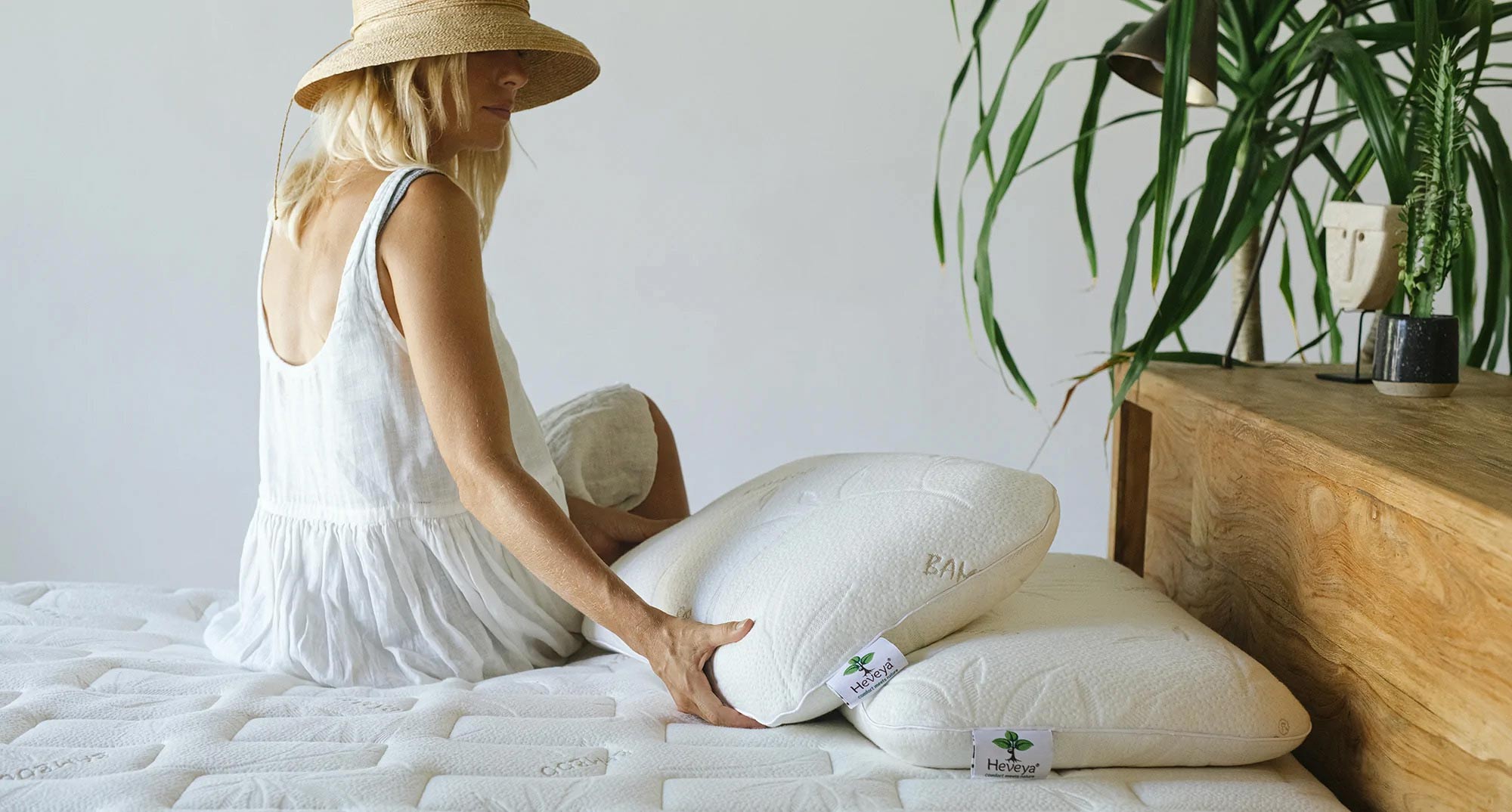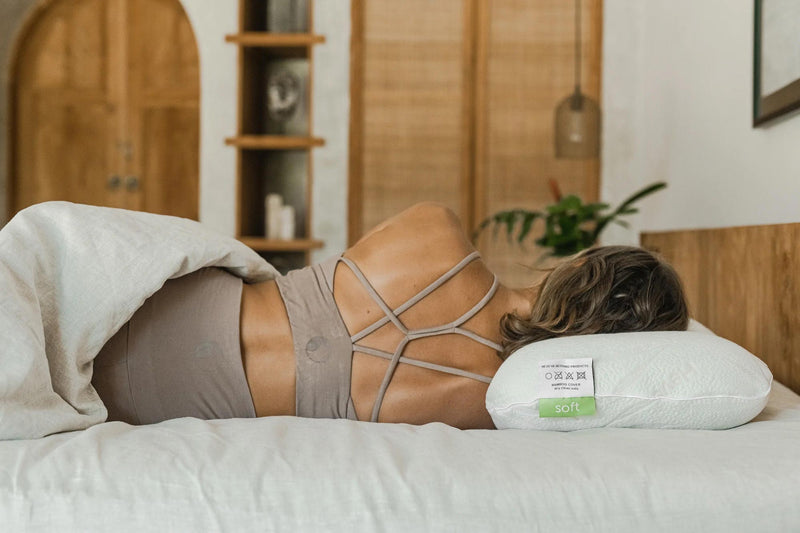Everyone can benefit from additional sleep knowledge. When it comes to getting a good night's sleep, there are many do's and don'ts. Some of these may surprise you! But apply these nuggets of knowledge to your sleep, individually or together, and you'll soon sleep better.
1. Your diet affects your sleep

What you eat during the day can affect your sleep at night. Did you know that protein rich meals tend to make you feel energized and awake? In contrast, carbohydrate rich meals will make you feel sleepy. So don't skip the carbs at dinner time - they'll help you sleep. Along similar lines, feel free to enjoy protein with your meal at lunchtime: you'll be more alert and function better at work that afternoon.
2. Watch what you drink
Do you enjoy the occasional drink of coffee, or alcohol if you're at a social event? If so, be aware that caffeine and alcohol will give you a lower quality of sleep.
Because caffeine is a stimulant, it is probably no surprise to you that it will cause poor sleep. Drinking caffeinated beverages in the afternoon or evening will cause you difficulty in falling asleep and in staying asleep. You'll have restless, fragmented sleep and will wake up feeling tired. If you're a true coffee lover, try to restrict your coffee drinking to the morning. If that sounds hard, then at the very least aim to cut back a little more each day on your afternoon or evening coffee. Consider replacing afternoon or evening coffee with decaf to maintain the comfort of your delicious drink. And if the main reason for you drinking coffee in the afternoon or evening is in order to stay awake, that's a red flag! It means something else is wrong with your sleep system, so read on and try out some of the other tips here.
Having a drink containing alcohol in the evening (for example at a formal dinner event), sounds like it would actually help you to sleep. But the truth is that it won't. Although alcohol will help you to get to sleep faster, it actually will disrupt your REM sleep (see reference 1). You need REM sleep to be properly rested, and therefore drinking alcohol before sleep will give you a poor night's sleep.
It pays to check ingredients in your food and drink. You may be surprised at how common caffeine or alcohol can be. Besides coffee, caffeine is also found in tea, some soft drinks, and chocolate. Besides beverages, alcohol is also found in some over-the-counter cough medicines, chocolates containing liqueur centres, and many varieties of vanilla essence for cooking (although the alcohol evaporates harmlessly upon cooking). Avoiding caffeine and alcohol in the evening can go a long way to helping you get a better sleep.
3. Take a warm bath before bed
Taking a warm bath or shower before bedtime has been reported as a great way to help fall asleep afterward. However, the science behind it may surprise you. It's not the fact of luxuriating in the warm water which helps you here (although that can't hurt!). Instead, the effectiveness of the warm shower or bath is due to the fact that it raises your body temperature, and then abruptly lowers it when you get out of the bath (see reference 2). A lower body temperature is associated with sleep, so the bath or shower pre-programs your body for sleep.
Timing is also important here: ideally you should take your shower or bath 90 to 120 minutes before you want to sleep.
4. Is napping important?
In an ideal world, you should get enough sleep at night that you are alert and awake all day without needing a nap. However, the reality is that if you simply aren't able to get sufficient sleep at night, then a nap may help combat sleepiness during the day.
Of course, most of us do not have the option to take a daytime nap due to our jobs. However, if you do have the option then you should take it (for example, if you are retired, or if you work early hours).
Research has shown that the best time for a nap is during the afternoon anytime from about 1pm to around 5pm. The length of time is important too: you should optimally nap for 30 to 60 minutes, any longer and you will have trouble falling asleep at night. Any shorter and you won't achieve the restful REM phase of sleep (see reference 3). Do not nap after 6pm: firstly it goes against your body clock (you'll find it surprisingly hard to begin to fall asleep at 6pm; try it sometime and see). Secondly, even a short nap starting at 6pm or later can wreak havoc with your night-time sleep.
So, the key here is not to get worried about whether you should or should not nap. Usually, this may be out of your control anyway due to work or other responsibilities. Instead, it's more important that if the opportunity presents itself for you to nap (for example on a weekend) that you nap for only 30 to 60 minutes at some point from 1pm to 5pm.
5. Keep daylight for the daytime
The body uses cues from light levels to give biological signals for sleep. When it starts getting dark, the body makes melatonin, which makes you feel sleepy. In the morning, even a small amount of light will cause a big drop in melatonin, making you feel alert and awake (see reference 4).
This knowledge underscores the importance of keeping your bedroom dark at night while asleep. You want your body to keep your natural melatonin levels high at night, and the way to do this is to ensure your room is completely dark.
Think you have a dark room just because you have curtains? Think again. Electronic devices which give off even the faintest glow (e.g. a cell phone charging its battery) can be enough to disrupt your melatonin levels. Charge your electronic devices in a different room to that in which you sleep. Also, regular curtains are almost certainly not sufficient at excluding external light, whether it is natural daylight or artificial light such as street lighting. You should ensure your curtains are lined with a heavy lining that blocks out as much light as possible.

6. Make it your job to relax at night
Life is stressful. That being the case, it'll only make it more stressful if you're up at night worrying about the events of the past day, or the day to come. Tossing and turning and worry in general will interfere greatly with your sleep.
Remind yourself that an inability to relax at night will make the next day worse for you through lack of sleep, rather than through whatever it was you were worrying about. This highlights the damage you can do when you worry, and importance of being able to relax.
So in this situation, you need to make it your priority to relax at bedtime. There are many methods you can use. If this is a big problem area for you, it may be a good idea to see a psychologist or therapist who can help you with specific techniques. One technique is progressive muscle relaxation, where you actively tense and then relax each muscle group. You usually start with the toes and work up to the head. In this way, you're ensuring that your muscles are indeed relaxed afterward by proving to yourself that you are doing it. Without this exercise, it's all too easy to go to bed with tensed-up muscles and be completely unaware of it. Another relaxation technique is self-hypnosis. Other people find meditation works best for them.
Ultimately it doesn't matter which technique you use, as long as it is successful in achieving a relaxed state of body and mind. Just as it is your job to work during the day, so it is your job to relax at night.
7. Say goodbye to insomnia
If you suffer from a chronic lack of sleep, also known as insomnia, then this needs to be addressed as a specific problem. If you cannot get sufficient sleep each night, even if you're really tired, then you'll need to do something about it.
Professor Colin Espie has developed a sleep restriction therapy program designed specifically to help chronic insomniacs get back to sleep (see reference 5). The idea behind this is to limit the time spent in the bedroom to just the time spent sleeping. Initially patients are only allowed to sleep 6 hours a night. They are only allowed to be in the bedroom during this specific 6 hour timeframe. When the 6 hours are up, the person has to get up and be out of the bedroom - regardless of whether or not they have slept. The idea is that eventually, the body is conditioned to the notion that the bedroom is only for sleep. Any activities like reading, watching TV, and so on, are done outside of the bedroom.
The theory behind this is to increase the sleep efficiency - that means having a better and deeper sleep for the amount of time they are in bed. Eventually, patients aim to increase the amount of time they are sleeping, but at first the emphasis is solely on sleeping efficiently. This therapy has proved to be surprisingly effective, and Professor Espie has developed an online form of the therapy called Sleepio that people can use (see reference 5).

8. Banish snoring!
If you snore, or if you sleep with a partner who snores, then you will certainly have disrupted sleep. You may not even be aware of the sleep disruption this causes. But the sound of snoring will fragment your sleep, even if it doesn't actually fully wake you up.
There are several over-the-counter devices designed to stop snoring, such as nasal strips, mouth guards, and so on. Sometimes, even changing your sleeping postions can also help to minimise snoring. However, for severe or persistent snoring, a visit to the doctor is a good idea to rule out more serious medical issues such as sleep apnoea.
9. Beat jetlag
For people who travel a lot, whether for business or pleasure, jetlag can cause a lot of sleep problems. An effective way to beat jetlag has been revealed by Harvard researchers. Using the body's 'food clock' is a very helpful way to reset the body's circadian rhythms. In the case of jet lag, it has been shown that abstaining from food until arriving at your destination can help overcome jet lag (see reference 6). Once at your destination, you should eat the normal meal of the day for the local time there.
10. Herbal remedies
A lot of 'tried and tested' home remedies for sleeplessness have been handed down the generations. Two of the most popular and effective are herbal teas, probably due in large part to their soothing aromas. One of these is chamomile tea; the other is lavender tea. Both are well known for helping calm and relax the body.
Conclusion
You can improve your sleep using the information here. The key is a willingness to make changes. You can try individual approaches or combine several of them to get a better sleep.
Interestingly, many of these approaches involve your daytime habits. Getting a good night's sleep isn't solely dependent on what you do at night time. Of course, it's still important to make sure you have a good quality comfortable mattress and a dark room. The take-home message here is to look at all aspects of your life when it comes to sleep: your daytime and your night-time habits.












